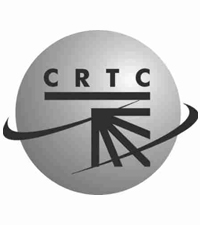So, has your Internet bill gone down yet?
It’s only been a week, but it seems like years in the making: Canada’s telecom regulator has decided on a new way to pay for Internet usage.
 The Canadian Radio-television and Telecommunications Commission (CRTC) announced last week that it has established a new billing model that sets limits on how much the major Internet Service Providers (like Bell or Rogers) charge to smaller, independent providers, like Teksavvy or Worldline.
The Canadian Radio-television and Telecommunications Commission (CRTC) announced last week that it has established a new billing model that sets limits on how much the major Internet Service Providers (like Bell or Rogers) charge to smaller, independent providers, like Teksavvy or Worldline.
Because the CRTC does not approve retail Internet rates and packages offered to Canadian consumers, it hopes that its setting of the wholesale rates “will have a favourable impact” on the companies that serve the retail market.
The idea is that a more predictable, reliable and accurate billing practice will calm the relationship between wholesalers and retailers, and eventually be of benefit to the end consumer and the overall state of Canada’s Internet infrastructure.
Some larger ISPs, like Bell, have seen the wholesale rates for providing its DSL service reduced by more than half (there are lower rates for Cogeco and Telus, too, but not Bell Aliant in Atlantic Canada).
The CRTC approved rate increases for Rogers, Shaw and Videotron.
Either way, the CRTC says its rulings will be “favourable” to consumers, “enabling” to larger providers and more “straightforward” for the independent ISPs.
It set the new rates based on cost information provided by the Internet companies themselves, and then it says it added a “reasonable mark-up”. Hearings on the subject were held by the CRTC last year.
“We are pleased to finally close this chapter after a careful examination of the wholesale rates,” said CRTC Chair Jean-Pierre Blais, “which included a review of the costing information.”
Internet lobby and citizen’s advocate groups are not so sure.
OpenMedia.ca, which inspired and helped coordinate an online petition by Internet users against high pricing structures, said the CRTC decision “appears to take small steps” towards controlling the costs that many see as far too high, especially when compared with Internet access rates in other countries.
OpenMedia said it is clear that much more is needed to fix Canada’s dysfunctional telecom market, noting that the three major providers still control some 90 per cent of the market.
(CRTC stats showed more than 700,000 high-speed residential Internet subscribers, or roughly seven per cent of the market, in 2011.)
“This decision is a small step in the right direction, but now we need bold action from policymakers to empower affordable choices for Canadians and make our country a leader in digital services again. The cat’s out of the bag, and now it’s time to fix our broken telecom market,” said OpenMedia.ca Executive Director Steve Anderson.
Independent ISP Worldline says it will see “significant reductions” in the wholesale rates they pay, noting that its monthly fee of $2,213 for 100 Mbps of capacity is to be cut by more than half to $1,036 per 100 Mbps.
“We will be looking to pass along the savings brought forth by this ruling to as many Canadians as possible,” promised Worldline Co-founder and CMO John Stix, saying the company will soon be announcing how they will pass these savings along to the Canadian marketplace.
“The CRTC decisions are a mixed bag with both benefits and losses,” said Marc Gaudrault, TekSavvy’s CEO. “Unfortunately, this is also a missed opportunity to create long term competition in the market. We will continue advocating for competition and Canadian consumers, as we always have.”
With some noted irony, it appears that the larger ISPs are already offering better deals to their consumers, and sooner than the independents.
According to Anderson, “Recent moves by Bell and Rogers to offer unlimited services clearly show that more choice benefits Canadians, as Big Telecom is increasingly forced to stop stifling access and innovation through artificial limitations and price-gouging…”
Big telecommunications companies have started offering unlimited internet packages for the first time in years, ahead of a decision by Canada’s telecommunications regulator that could determine whether independent internet service providers are able to offer similar packages.
Rogers began advertising an unlimited internet offer that matched one announced by Bell last month; the offers are for existing customers of other services, and are time-limited in availability.
It’s the first time in many years, if at all, that an unlimited Internet service has been offered by the major providers.
-30-
submitted by Lee Rickwood
# # #
So, whatsyourtech?
Do you pay too much for Internet?
Do you think your bill will go down as a result of the new rules?



